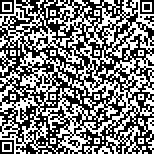| Quote
: |
刘智,彭赛,周启.不同电针频率在肺切除术患者针刺麻醉中的应用及对应激反应、免疫功能的影响[J].湖南中医药大学学报英文版,2020,40(2):209-213.[Click to copy
] |
|
| |
|
|
| This paper
:Browser 3448times Download 2004times |
| 不同电针频率在肺切除术患者针刺麻醉中的应用及对应激反应、免疫功能的影响 |
| 刘智,彭赛,周启 |
| (湖南中医药大学第一附属医院麻醉科, 湖南 长沙 410007) |
| 摘要: |
| 目的 探讨不同电针频率在肺切除术患者针刺麻醉中的应用效果。方法 选取108例行肺切除术患者,随机分为A、B、C、D 4组,各27例。4组患者均行全身麻醉,A组给予假针刺,B、C、D组给予经穴电针刺激,其中B组电针频率2 Hz、C组电针频率100 Hz、D组电针频率2 Hz/100 Hz。记录患者术中的麻醉药物追加量、生命体征、肾上腺素和皮质醇水平、T淋巴细胞亚群CD4+/CD8+比值。结果 (1)与A组比较,B、C、D组芬太尼追加量较低(P<0.05);与B、C组比较,D组芬太尼追加量较低(P<0.05)。(2)4组患者丙泊酚追加量比较,差异无统计学意义(P>0.05)。(3)麻醉诱导期,B、C、D组的平均动脉压、呼吸频率均小于A组(P<0.05)。(4)与A组比较,B、C、D组术中肾上腺素水平较低(P<0.05);与C、D组比较,B组术中肾上腺素水平较低(P<0.05)。(5)与A组比较,B、C、D组术中皮质醇水平较低(P<0.05);与C组比较,B、D组术中皮质醇水平较低(P<0.05)。(6)手术期间,B、C、D组的CD4+/CD8+均高于A组(P<0.05)。(7)4组患者全麻相关并发症比较,差异无统计学意义(P>0.05),无针刺不良反应发生。结论 患者行全麻时联合针刺麻醉,可以减少麻醉药用量,维持手术期间生命体征稳定,减少应激反应,调节机体免疫。其中2 Hz/100 Hz电针频率的镇痛效果最好,2 Hz电针频率在减少围手术期应激的作用最好。 |
| 关键词: 肺切除术 全身麻醉 针刺麻醉 电针频率 应激反应 免疫功能 |
| DOI:10.3969/j.issn.1674-070X.2020.02.018 |
| Received:May 22, 2019 |
| 基金项目:湖南省科技厅重点研发项目(2015JC3071);湖南省卫健委一般项目(B20180623)。 |
|
| Application of Different Electroacupuncture Frequencies in the Acupuncture Anesthesia of Patients Undergoing Pneumonectomy and its Effects on Stress Response and Immune Function |
| LIU Zhi,PENG Sai,ZHOU Qi |
| (Department of Anesthesiology, The First Affiliated Hospital of Hunan University of Chinese Medicine, Changsha, Hunan 410007 China) |
| Abstract: |
| Objective To explore the application effects of different electroacupuncture frequencies on acupuncture anesthesia of patients undergoing pneumonectomy. Methods A total of 108 patients who underwent pneumonectomy were selected and randomly divided into 4 groups, group A, group B, group C and group D, with 27 cases in each group. All patients were given general anesthesia. Group A was given sham acupuncture, and groups B, group C and group D were given electroacupuncture at acupoints. The electroacupuncture frequency was 2 Hz in group B, 100 Hz in group C and 2 Hz/100 Hz in group D. The intraoperative additional doses of anesthetics, vital signs, levels of adrenaline and cortisol, and T lymphocyte subset CD4+/CD8+ ration were recorded. Results (1)The additional dose of fentanyl was decreased in groups B, C and D compared with that in group A (P<0.05). The additional dose of fentanyl was decreased in group D compared with that in groups B and C (P<0.05). (2) There was no significant difference in the additional dose of propofol among the 4 groups and the difference was not statistically significant(P>0.05). (3) During anesthesia induction, the mean arterial pressure and respiratory rate in groups B, group C and group D were significantly lower than those in group A (P<0.05). (4) Compared with group A, the levels of adrenaline during operation were lower in groups B, groupC, and group D (P<0.05); compared with group C and group D, the levels of adrenaline during operation were lower in group B (P<0.05). (5) Compared with group A, the levels of cortisol during operation were lower in groups B, C, and D (P<0.05); compared with group C, the levels of cortisol were lower during operation (P<0.05). (6) During surgery, the CD4+/CD8+ in groups B, group C, and group D were higher than those in group A (P<0.05). (7) There were no significant differences in general anesthesia-related complications between the 4 groups, and the difference was not statistically significant(P>0.05). No acupuncture adverse reactions occurred. During operation, the CD4+/CD8+ in groups B, C and D was smaller than that in group A (P<0.05). There were no significant differences in the complications of general anesthesia among the four roups (P>0.05), and there were no adverse acupuncture reactions. Conclusion When patients undergo general anesthesia, combining with acupuncture anesthesia can reduce the doses of anesthetics, maintain stable vital signs during surgery, reduce stress response, and regulate body immunity. 2 Hz/100 Hz electroacupuncture frequency has the best analgesic effects, and 2 Hz electroacupuncture frequency has the best effects on reducing perioperative stress response. |
| Key words: pneumonectomy general anesthesia acupuncture anesthesia electroacupuncture frequency stress response immune function |
|

二维码(扫一下试试看!) |
|
|
|
|


